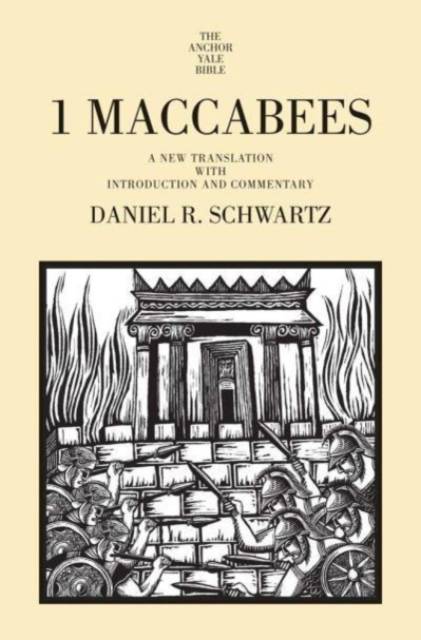
- Retrait gratuit dans votre magasin Club
- 7.000.000 titres dans notre catalogue
- Payer en toute sécurité
- Toujours un magasin près de chez vous
- Retrait gratuit dans votre magasin Club
- 7.000.0000 titres dans notre catalogue
- Payer en toute sécurité
- Toujours un magasin près de chez vous
87,95 €
+ 175 points
Description
A new translation and commentary on I Maccabees that offers a fresh interpretation of the author's values and purpose First Maccabees, composed in the second century BCE, chronicles four decades of clashes between Hellenistic Syria and Judea, from Antiochus Epiphanes's ascent to the throne in 175 BCE to the Hasmoneans' establishment of an independent Judean state, ruled by Simon and his sons. In this volume, Daniel R. Schwartz provides a new translation of the Greek text and analyzes its historical significance. In dialogue with contemporary scholarship, the introduction surveys the work's themes, sources, and transmission, while the commentary addresses textual details and issues of historical reconstruction, often devoting special attention to the lost Hebrew original and its associations. Schwartz demonstrates that 1 Maccabees, despite its Hebraic biblical style and its survival within the Christian canon, deviates from biblical and Judaic works by marginalizing God, evincing scorn for martyrs, and ascribing to human power and valor crucial historical roles. This all fits its mandate: justification of the Hasmonean dynasty, especially the Simonides.
Spécifications
Parties prenantes
- Auteur(s) :
- Editeur:
Contenu
- Nombre de pages :
- 504
- Langue:
- Anglais
- Collection :
Caractéristiques
- EAN:
- 9780300159936
- Date de parution :
- 26-04-22
- Format:
- Livre relié
- Format numérique:
- Genaaid
- Dimensions :
- 157 mm x 239 mm
- Poids :
- 879 g

Les avis
Nous publions uniquement les avis qui respectent les conditions requises. Consultez nos conditions pour les avis.






